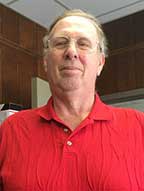
Contact
Email: aim10@msstate.edu
Phone: 662-325-7075
Alan I Marcus came to Mississippi State University as head of the history department in 2005 from Iowa State University where he had been Distinguished Humanities Professor, Big Eight Honor Lecturer, Mid-American University Association Honor Lecturer, and director of that university's first Ph.D. program in the humanities. Since he arrived at Mississippi State, Marcus has guided the makeover of the history department, putting the history Ph.D. program in line with the school's land-grant heritage and revamping the undergraduate curriculum to include recitation sections. He served to establish the African American Studies program and to select its founding director. Marcus established the Graduate Diversity Certificate Program and created the Symposium for History Undergraduate Research, an annual nationwide conference that brings the best undergraduate history majors to Mississippi State to present their research. He lectured at the inaugural MSU Faculty Leadership Program, inspired formation of the Center for the History of Agriculture, Science and the Environment in the South (CHASES) and organized the only national historical commemoration of the 150th anniversary of the Morrill Land-Grant Act. He has mentored and graduated exactly 25 PhDs and about 50 Masters students. He recently completed doing double duty as interim head of the chemistry department.
While diffuse, Marcus's scholarship engages the history of science, technology, the environment, agriculture and medicine, often at the nexus among two or more of these areas. Arguing that historical action is the consequence of people solving real or perceived 'problems,' Marcus labors to identify to what 'problem' was an act deemed a suitable resolution and why that situation, condition or occurrence, which may have been longstanding, came to be seen as a 'problem' that needed amelioration at that particular historical moment and place. His over 3½ million words in print include some 23 books and special issues of journals, 43 articles and chapters of books, and numerous short pieces. Marcus has written on topics as different as the advent of writing, building medieval cathedrals, establishment of American city government, professionalization of medicine, creation of the American agricultural research establishment, regulation of food and drugs, technology in America, management theory, hookworm disease, animal nutrition, United States science policy since 1950 and cancer. Two of his books have won Choice Outstanding Academic Book Awards. Two others have received featured reviews in Science. His writing has served as a basis for at least two First District Court of Appeals decisions.
In addition to presenting his research at numerous professional historical meetings and to many universities and colleges, Marcus was tapped to speak at the inauguration of the 17th President of the University of Maine; participated in a Presidential symposium of the American Chemical Association; spoke on panels with Nobel Prize winners--Bob Curl (chemistry) and Ken Wilson (physics); dedicated science buildings at Grinnell College and Illinois State University; and addressed special meetings of the National Association of Biology Teachers, the National Archives and the National Endowment for the Humanities (NEH). He has spoken at bioethics conferences and at a special ESCOP retreat to train future agricultural college deans and experiment station directors. He has had a four-part National Public Radio Series and a monthly radio show. His film on Hollywood's vision of the Midwest has been shown at numerous historical meetings.
Marcus has generated about $500,000 in external funding for USDA, Environmental Protection Agency, National Science Foundation and NEH-sponsored projects. He has directed two NEH Institutes for College and University Faculty on the science and technology in American history, been an NEH Senior Scholar and sat on several NEH panels. He has been a frequent referee for MacArthur Foundation Genius Fellowships, headed committees of the Organization of American Historians and Society for the History of Technology and is a Fellow of the Agricultural History Society. Marcus recently was awarded the Gladys L. Baker Lifetime Achievement Award from that society.